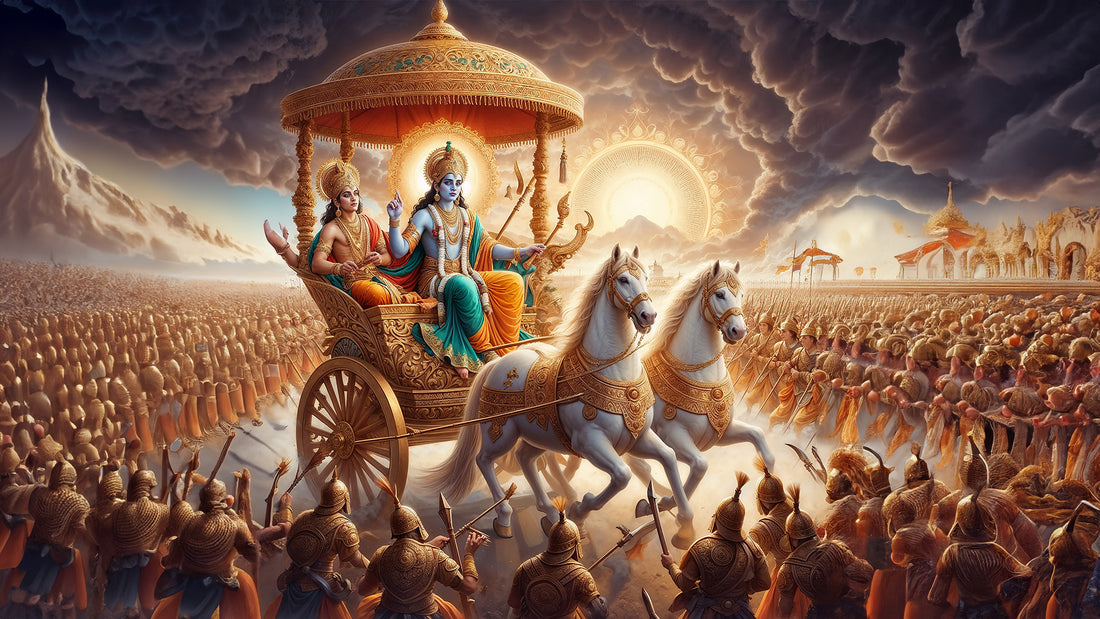The Bhagavad Gita is a timeless philosophical text embedded within the epic Mahabharata, it offers profound insights into the nature of existence, the human condition, and the path to spiritual liberation. Its teachings, though ancient, remain relevant in today's fast-paced world.
Key Lessons from the Bhagavad Gita
-
The Importance of Duty (Dharma):
The Gita emphasizes the importance of fulfilling one's duty, regardless of personal desires or circumstances. In today's world, this could mean fulfilling our responsibilities as parents, employees, or citizens. For example, a dedicated doctor fulfilling their duty to save lives or a teacher imparting knowledge to students. -
The Path of Selfless Action (Nishkama Karma):
The Gita teaches us to perform our duties without attachment to the results. This means working diligently and honestly, without expecting rewards or recognition. Volunteering for the welfare of the society, is the path of Selfless Action in today’s modern life. -
The Power of Yoga:
The Gita advocates for yoga, a holistic practice that encompasses physical, mental, and spiritual disciplines. Yoga helps us connect with our inner selves, improve our physical and mental health, and achieve harmony. Yoga can be a powerful tool for managing stress, anxiety, and depression and help to unwind after work. -
Surrender to the Divine (Bhakti):
The Gita promotes devotion to a higher power. By surrendering to a higher power, we can find solace, guidance, and protection. This can be as simple as spending time in nature, practicing meditation, or engaging in prayer.
Applying the Gita's Wisdom in Modern Life
The teachings of the Bhagavad Gita can be applied to various aspects of modern life:
Workplace:
By practicing Nishkama Karma, we can approach our work with a sense of purpose and dedication, without being attached to the outcomes. This can lead to increased job satisfaction and productivity.
Relationships:
The Gita teaches us the importance of compassion, forgiveness, and understanding in our relationships with others. By practicing these virtues, we can build stronger and more meaningful relationships with our loved ones.
Self-Improvement:
By practicing yoga and meditation, we can improve our mental and emotional well-being. These practices can help us manage stress, reduce anxiety, and enhance our overall quality of life.
Social Responsibility:
The Gita emphasizes the importance of fulfilling one's duties towards society. This can be done by volunteering, donating to charity, or working towards social causes.
The Bhagavad Gita offers timeless wisdom that can help us navigate the complexities of modern life. By embracing its teachings and incorporating them into our daily lives, we can lead more fulfilling and meaningful lives.












